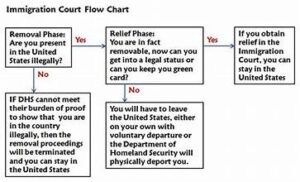
In recent years, immigration laws in many countries have undergone significant changes, particularly concerning deportation policies. For individuals facing deportation or those advising others in similar situations, understanding these recent changes is crucial for crafting a strong defense. This article provides an overview of the latest updates in deportation laws and offers guidance on how to build an effective defense strategy.
Recent Changes in Deportation Laws
1. Expanded Grounds for Deportation
Recent legislative changes have broadened the grounds for deportation. In some jurisdictions, even minor criminal offenses can lead to deportation. It is essential to be aware of how these expanded grounds may apply to individual cases. For instance, certain non-violent offenses or immigration violations that previously did not warrant deportation might now be grounds for removal.
2. Changes in Deportation Procedures
New procedural requirements and processes have been introduced, affecting how deportation cases are handled. These changes often include tighter deadlines for filing appeals, more stringent evidence requirements, and alterations in the deportation review process. Staying updated on these procedural changes can significantly impact the ability to mount a successful defense.
3. Increased Enforcement Actions
Authorities have increased their enforcement actions, leading to more frequent deportations. This includes heightened scrutiny of visa applications, increased use of technology for tracking immigration status, and more proactive measures by immigration enforcement agencies. Understanding these enforcement trends helps in anticipating potential challenges and preparing an appropriate response.
4. Impact of Recent Judicial Rulings
Judicial rulings can shape deportation laws by interpreting existing statutes or influencing new regulations. Recent court decisions may affect how laws are enforced or provide new avenues for challenging deportation orders. Keeping abreast of relevant judicial precedents is vital for leveraging legal arguments in defense cases.
Building a Strong Defense
1. Understand the New Laws and Regulations
To effectively defend against deportation, it is crucial to have a thorough understanding of the current laws and regulations. This involves researching recent changes, including amendments to statutes and shifts in enforcement practices. Consult with an immigration attorney to ensure that you have accurate and comprehensive information.
2. Gather Evidence and Documentation
Building a strong defense requires robust evidence and documentation. This may include proof of residency, evidence of ties to the community, records of employment, and any documentation related to the grounds for deportation. Detailed and well-organized evidence can help challenge the validity of the deportation order and demonstrate eligibility for relief.
3. Explore Available Legal Remedies
Several legal remedies may be available to those facing deportation. These include applying for asylum, seeking a stay of deportation, or exploring options for relief under current immigration laws. An immigration attorney can provide guidance on the best legal strategies based on the specifics of the case.
4. File Timely Appeals and Motions
Adhering to deadlines is critical in deportation cases. Failure to file appeals or motions within the prescribed time limits can result in the loss of legal options. Ensure that all necessary documents are submitted on time and that any procedural requirements are met to preserve the right to contest the deportation order.
5. Consider Public Policy Arguments
In some cases, public policy arguments can play a role in defending against deportation. This may involve demonstrating the potential impact of deportation on family members, community contributions, or humanitarian concerns. Highlighting these aspects can sometimes influence the outcome of the case.
6. Seek Professional Legal Assistance
Navigating deportation laws and procedures can be complex. Engaging an experienced immigration attorney is crucial for developing an effective defense strategy. Legal professionals can provide expert advice, represent clients in hearings, and help in preparing and submitting necessary documents.
Conclusion
The recent changes in deportation laws have introduced new challenges and considerations for those facing deportation. By understanding these changes and taking proactive steps to build a strong defense, individuals can better navigate the complexities of the legal system. Staying informed, gathering evidence, exploring legal remedies, and seeking professional assistance are key components in mounting a successful defense against deportation.




